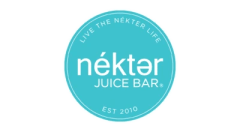Onze partners
Vertrouwd door
1000+ IT-oplossingsaanbieders en ondernemingen












Hoe u gemakkelijk uw beveiliging voor thuiswerken kunt verbeteren door gebruik te maken van bestanddelingsservers












Iedereen wereldwijd heeft toegang tot dezelfde bestanden, die allemaal actueel en nauwkeurig zijn, vanuit een systeem dat ook veilig en eenvoudig te implementeren is.

CHRISTOPHER JESMAN
Directeur
Panorama Antennes
Nu kunnen we naar elke zorgverlener in Nederland gaan en zeggen dat dit allemaal functioneert volgens de Nederlandse gezondheidsregelgeving.

ROB CHRIST
Directeur & Mede-eigenaar
Damecon
CentreStack is de beste vervangingsoplossing voor bestandsservers op de markt. Ze leiden niet alleen de markt, maar hebben in feite een nieuwe markt gecreëerd.

STEPHEN MONK
CEO
Noverus
Werknemers die vanuit huis werken hebben een veilige manier nodig om bestanden te delen met andere werknemers. Met een veilige bestandsdeling oplossing, kunnen bedrijven de moeite en kosten van het beheren van hun VPN's elimineren en hun werknemers in staat stellen bestanden te delen via de cloud.
De veranderende technologische omgeving van vandaag stelt steeds meer Amerikanen in staat om vanuit huis te werken. Volgens gegevens van de Amerikaanse volkstelling werkten in 2017 8 miljoen mensen vanuit huis. Dat is 5,2% van de beroepsbevolking, een aanzienlijke stijging ten opzichte van de 3,3% die in 2000 vanuit huis werkte.
Naarmate meer werknemers vanuit huis werken, moet het werk dat ze doen veilig blijven. Dit is vooral belangrijk als het gaat om bestandsdeling - bedrijven willen niet dat gevoelige informatie onderhevig is aan diefstal en hacking vanaf een externe locatie.
Er zijn twee belangrijke benaderingen om gevoelige gegevens voor externe werknemers te beveiligen. Bedrijven kunnen ofwel een bestandsdelingsserver gebruiken of een virtueel privénetwerk (VPN). Hoewel VPN's de traditionele keuze zijn geweest, stappen steeds meer bedrijven over op beveiligde bestandsdelingsservers.

Er zijn veel verschillende soorten bestandsservers. Bedrijven die een on-premises bestandsserver onderhouden, beheren doorgaans de toegang via tweefactorauthenticatie en per-bestand en per-map machtigingenbeheer.
Andere bedrijven gebruiken cloud-bestandsdeling die beveiligd is met end-to-end encryptie. Een cloud bestandsserver kan automatisch gegevens synchroniseren met de on-premises servers van een bedrijf en de oorspronkelijke bestandsdelingen en schijfmapping repliceren. Cloud-bestandsdeling biedt ondersteuning voor meerdere platforms en toegang vanaf Android- en iOS-mobiele apparaten.
CentreStack voegt veilige externe toegang en bestandsdeling, rampenpreventie en -herstel toe aan bestandsservers op locatie met eenvoudige cloudmigratie naar privé cloudopslag. Het is de echte cloud-bestandsserveroplossing waar u naar op zoek was!
CentreStack overbrugt file servers en cloudopslag voor veilige externe toegang zonder de noodzaak van een VPN.
CentreStack zet cloudopslagaccounts om in een centrale cloud-bestandsrepository met versiebeheer, bestandswijzigingsgeschiedenis en audittracering om bedrijfscontinuïteit te bieden voor bestandsservers op locatie.
CentreStack benut cloudopslag voor veilige mobiele bestandsdeling vanuit een webbrowser of vanuit een mobiele applicatie.
CentreStack zet een hybride implementatie op tussen lokale bestandsservers en cloudopslag die naadloos kan worden omgezet naar alleen cloud.
Historisch gezien hebben veel bedrijven VPN's gebruikt om externe werknemers toegang te geven tot gevoelige gegevens op hun lokale bestandsservers. Helaas hebben externe gebruikers soms moeite met het verbinden met een VPN en ervaren ze vaak problemen met wegvallende verbindingen. VPN-snelheden zijn ook aanzienlijk langzamer dan onbeveiligde internetverbindingen, wat de productiviteit kan belemmeren.
Vanuit het perspectief van een bedrijf kunnen VPN's lastig zijn om te configureren en te beheren. Als een VPN niet goed is geconfigureerd, kan het onderhevig zijn aan IP- en DNS-lekken, wat de VPN minder veilig maakt dan een standaard internetverbinding. VPN's kunnen ook gehackt worden, wat alle ongecodeerde gegevens blootstelt aan nieuwsgierige blikken.
Een cloudgebaseerde bestandsdelingsserver elimineert de noodzaak voor een VPN en de bijbehorende uitdagingen. Voor externe werknemers is een bestandsdelingsserver snel en eenvoudig te gebruiken. Bedrijven hebben niet dezelfde configuratie- of beveiligingsproblemen als met VPN's, terwijl ze dezelfde gedetailleerde mapmachtigingen en authenticatie behouden als hun lokale servers. Het is een win-winoplossing voor alle partijen.
Vanuit een beveiligingsperspectief is VPN zeer veilig. Echter, het ontbreken van de mogelijkheid om offline te bewerken, de traagheid bij het bladeren door een grote map en de onmogelijkheid om samen te werken aan grote bestanden, zullen werknemers dwingen om andere methoden te proberen om 'hun werk gedaan te krijgen.' Deze andere methoden omvatten:
Uiteindelijk drijft de zwakte van VPN's het gedrag van gebruikers weg van de VPN-diensten, en daardoor is het helemaal niet veilig.

CentreStack is een veilige bestandsdelingoplossing die door duizenden bedrijven over de hele wereld wordt gebruikt. Het CentreStack-team heeft meer dan tien jaar ervaring met cloudgebaseerde bestandsservers en kan bedrijven van alle soorten helpen bij het migreren van hun bestaande bestandsservers naar de cloud voor veilig delen. Elimineer vandaag nog de kosten en het gedoe van VPN's met de bestandsdelingserveroplossingen van CentreStack.
Neem vandaag nog contact met ons op en probeer CentreStack veilige bestandsdeling gratis!